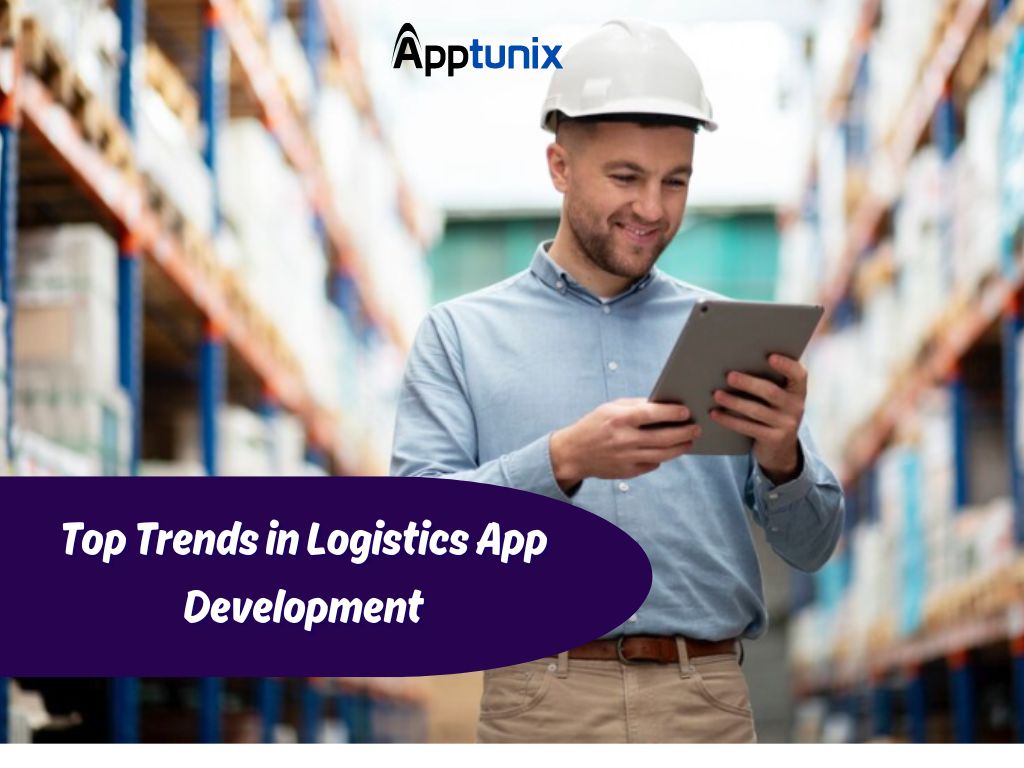In the ever-evolving landscape of logistics, staying ahead of the curve is paramount for businesses aiming to optimize operations, enhance efficiency, and deliver superior customer experiences. With the advent of technology, especially mobile applications, the logistics industry is undergoing a significant transformation. Let's delve into the top trends shaping the future of logistics app development.
1. Real-Time Tracking and Visibility
Real-time tracking capabilities have become a cornerstone of modern logistics applications. Shippers and carriers alike demand visibility into the movement of goods throughout the supply chain. Advanced GPS technology coupled with robust backend systems enables precise tracking of shipments, providing stakeholders with real-time updates on the status and location of their cargo.
2. Predictive Analytics and AI
The integration of predictive analytics and artificial intelligence (AI) is revolutionizing logistics app development. By analyzing vast amounts of historical and real-time data, AI-powered algorithms can forecast demand, anticipate potential disruptions, and optimize routing and scheduling decisions. Predictive maintenance algorithms help prevent equipment failures, reducing downtime and maintenance costs. AI-driven chatbots and virtual assistants enhance customer service by providing instant support and resolving queries efficiently.
3. Blockchain for Enhanced Security and Transparency
Blockchain technology is gaining traction in the logistics sector, offering enhanced security, transparency, and traceability. By creating an immutable ledger of transactions, blockchain ensures data integrity and authenticity, mitigating the risk of fraud and tampering. Smart contracts automate contract execution and payment processes, streamlining transactions and reducing administrative overhead. Blockchain-enabled logistics apps facilitate seamless collaboration between multiple parties in the supply chain, enabling real-time data sharing and improved decision-making.
4. Last-Mile Delivery Optimization
As e-commerce continues to thrive, last-mile delivery optimization has become a critical focus for logistics companies. Advanced routing algorithms and dynamic route optimization tools help drivers navigate congested urban areas efficiently, minimizing delivery times and reducing fuel consumption. Delivery drones and autonomous vehicles are also being explored as innovative solutions for cost-effective and eco-friendly last-mile delivery.
5. Integration of IoT Sensors
The Internet of Things (IoT) is reshaping logistics app development by enabling the seamless integration of IoT sensors into supply chain operations. These sensors collect real-time data on temperature, humidity, shock, and location, providing valuable insights into the condition and status of goods in transit. IoT-enabled logistics apps empower businesses to proactively monitor and manage inventory, ensure compliance with regulatory requirements, and maintain product quality throughout the supply chain.
6. Sustainability and Green Logistics
With increasing awareness of environmental issues, sustainability has emerged as a key priority for logistics companies. Green logistics initiatives aim to minimize carbon emissions, reduce waste, and promote eco-friendly practices throughout the supply chain. Logistics apps are incorporating features such as carbon footprint tracking, alternative route optimization, and modal shift analysis to support sustainable transportation decisions and reduce environmental impact.
7. Voice Technology and Hands-Free Operations
Voice technology is revolutionizing warehouse operations by enabling hands-free picking, packing, and inventory management. Voice-enabled logistics apps leverage natural language processing (NLP) and speech recognition technologies to facilitate seamless communication between warehouse staff and backend systems. By eliminating the need for manual data entry and paper-based processes, voice technology improves accuracy, efficiency, and worker safety in the warehouse.
Also Read: https://medium.com/@arilacozen/a-ceos-guide-to-custom-logistics-software-development-4b00e2d3840c
Conclusion
In conclusion, logistics app development is undergoing a profound transformation driven by technological advancements and changing market dynamics. From real-time tracking and predictive analytics to blockchain integration and sustainability initiatives, the top trends in logistics app development are reshaping the industry and setting new standards for efficiency, transparency, and innovation.


No comments yet